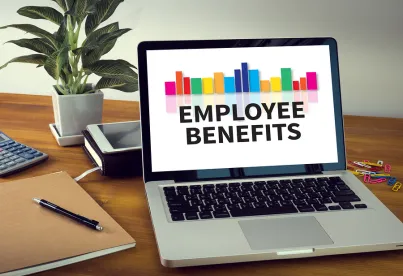On March 27, 2020, the Coronavirus Aid, Relief, and Economic Security (CARES) Act (the “Act”) was signed into law with the intention of easing the burden on employers and individuals facing financial difficulties stemming from the COVID-19 pandemic. The Act contains several provisions affecting employee benefit plans, which are summarized below.
Penalty-Free Early Distributions from Qualified Retirement Plans
-
The Act provides that qualified defined contribution plans may be amended to allow participants to take “coronavirus-related distributions” prior to the end of 2020 of up to $100,000. Such a distribution is not subject to the 10% early withdrawal penalty that otherwise generally applies to in-service distributions prior to age 59 ½. Also, unless the participant elects otherwise, the distribution will be taxed ratably over the three-year period beginning in 2020. Until further guidance from the IRS is promulgated, coronavirus-related distributions from defined benefit plans would not be permitted because of the in-service distribution restrictions generally applicable to such plans.
-
A “coronavirus-related distribution” is a distribution made in 2020 (January 1 – December 31) to an individual who is diagnosed with COVID-19, has a spouse or dependent diagnosed with COVID-19, or experiences adverse financial consequences as a result of being quarantined, furloughed or laid off or having work hours reduced due to COVID-19, being unable to work due to lack of childcare due to COVID-19, or the closing or reducing hours of a business owned or operated by the individual due to COVID-19. Participants can self-certify that they meet these requirements and plan administrators may rely on such self-certifications when determining whether a distribution is a coronavirus-related distribution. Accordingly, an appropriate self-certification process should be implemented immediately.
-
A participant may repay a coronavirus-related distribution any time during the three-year period beginning on the day after the distribution was received. If repaid on a timely basis, the amount repaid will be treated as an eligible rollover distribution that was timely rolled over into the plan.
Permissible Plan Loan Amounts Increased and Loan Repayments Delayed
-
For the 180-day period beginning on the date of enactment (i.e., through September 23, 2020), the Act increases the maximum permissible plan loan amount to $100,000 or 100% of a participant’s vested account balance (whichever is less) for individuals who qualify for a coronavirus-related distribution (as described above).
-
Also, for those individuals who qualify for a coronavirus-related distribution the Act delays for one year repayments for currently outstanding plan loans that are due during the remainder of 2020. Future loan payments will be adjusted to reflect continued accrual of interest on the loan. The five-year repayment period normally applicable to plan loans is extended to account for the period during which loan repayments are delayed.
Temporary Waiver of Required Minimum Distributions
-
The Act provides that the minimum distribution requirements of Code Section 401(a)(9) will not apply to qualified defined contribution plans (i.e., Section 401(k), 403(b) and 457(b) plans) for calendar year 2020. The waiver applies to all minimum distributions required to be paid in 2020, including 2019 required minimum distributions that were required to be paid by April 1, 2020. The Act does not address how or whether this applies to distributions that were taken between January 1, 2020 and March 27, 2020, but regulatory guidance on this point is anticipated.
Single-Employer Defined Benefit Plan Funding Rules
-
The Act extends the due date to January 1, 2021 for all minimum required contributions (including quarterly contributions) for single-employer defined benefit plans that otherwise would have been due during 2020. Interest from the original 2020 due date will continue to accrue on the contributions until such contributions are made.
-
For purposes of complying with the Code Section 436 benefit restrictions for underfunded defined benefit plans for the plan year that begins in 2020, a plan sponsor can elect to use the plan’s adjusted funding target attainment percentage for the last plan year ending before January 1, 2020.
Although implementation of the above changes can take place immediately, plan amendments are generally not required until 2022 or later. Plan sponsors should work with their service providers to implement and document any desired changes in the interim. Your Vedder Price attorney can assist with reviewing or preparing any documentation and participant communication with respect to any changes.
Student Loan Repayment Assistance
-
The Act permits an employer to provide tax-free student loan repayment assistance to its employees of up to $5,250 under a Code Section 127 qualified educational assistance program. The payments, which can be made to the employee or directly to the lender, must be made after March 27, 2020 and prior to January 1, 2021, to qualify.
Required Coverage of Preventive Services and Vaccines for Coronavirus
-
The Act requires group health plans to cover, without cost sharing, any qualifying coronavirus preventive service, including any item, service or immunization intended to prevent or mitigate COVID-19 that has an “A” or “B” rating by the United States Preventive Task Force or is recommended by the Centers for Disease Control and Prevention. These requirements will become effective 15 days after such a recommendation is made.
Telehealth Services Permitted without Deductible under High Deductible Health Plans
-
The Act provides that a high deductible health plan (HDHP) that provides coverage for telehealth and other remote care services without a deductible will still maintain HDHP status. Accordingly, employees enrolled in HDHPs that provide such coverage will remain HSA-eligible. This change applies to plan years beginning on or before December 31, 2021.
Amendments to implement the student loan repayment assistance provisions or waive the deductible for telehealth services under HDHPs should be adopted prior to implementation.




 />i
/>i
